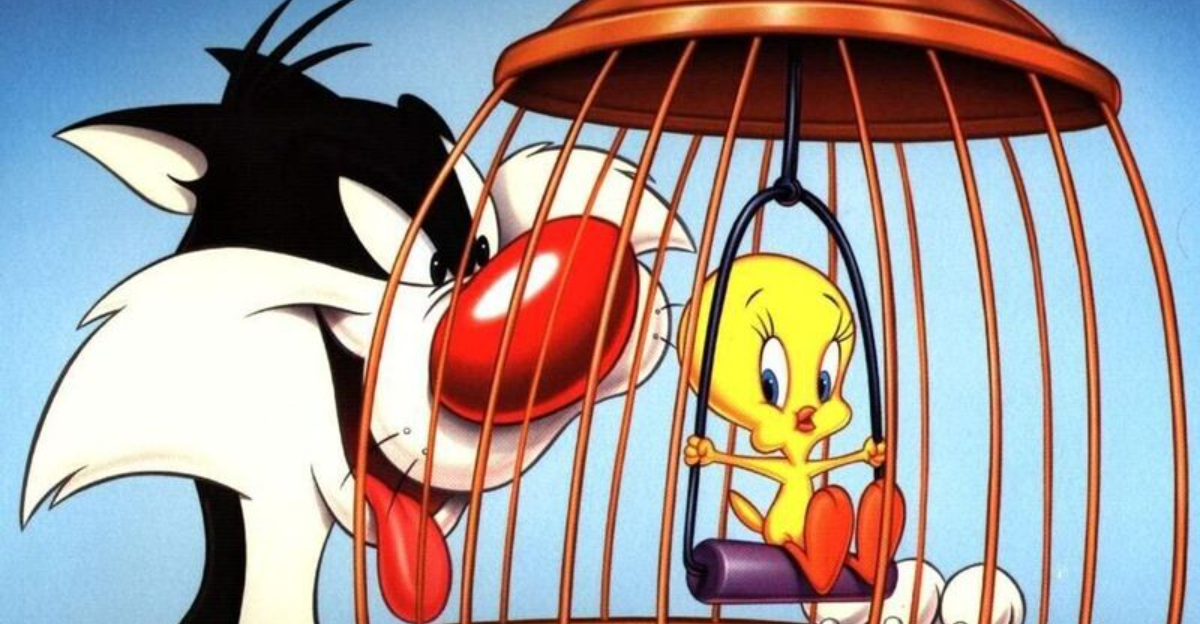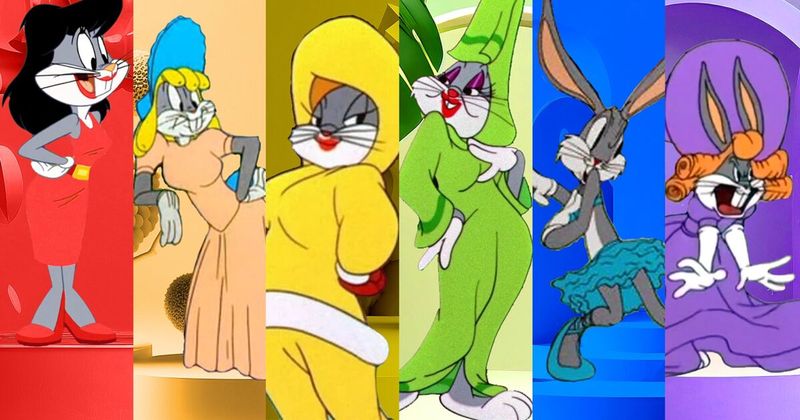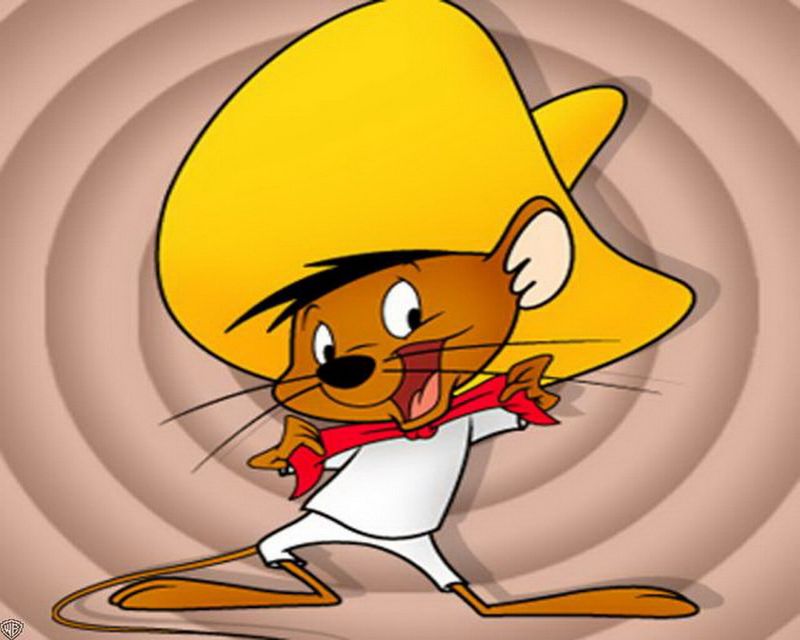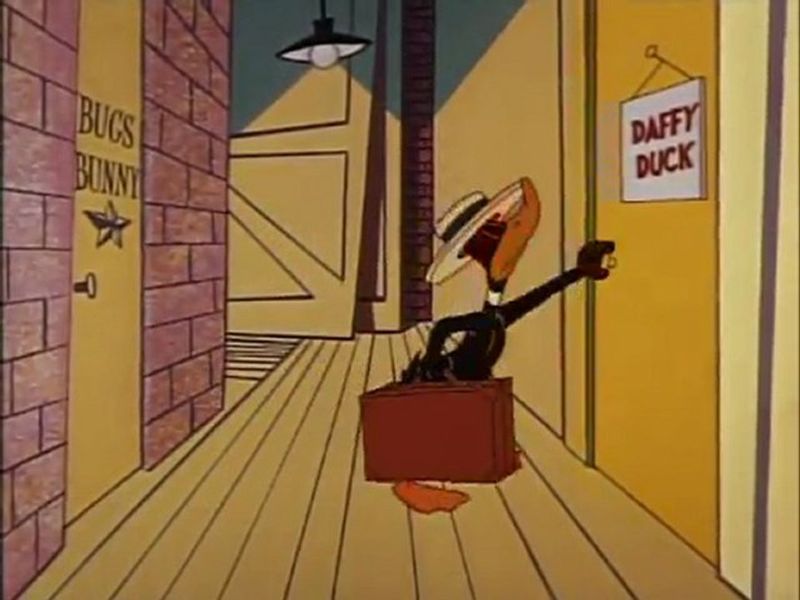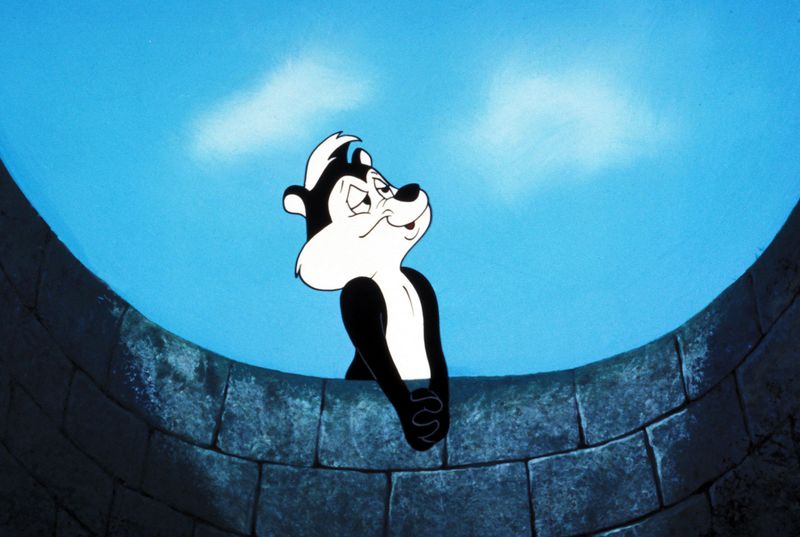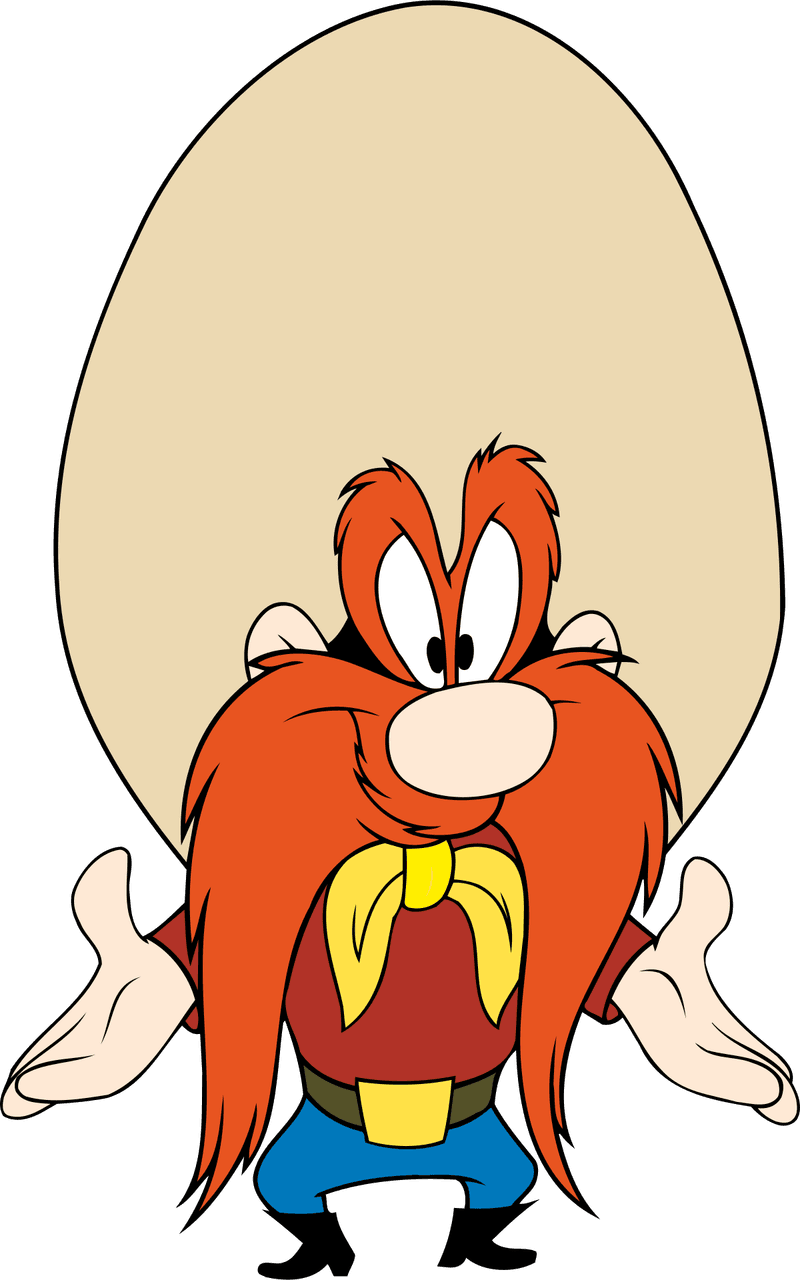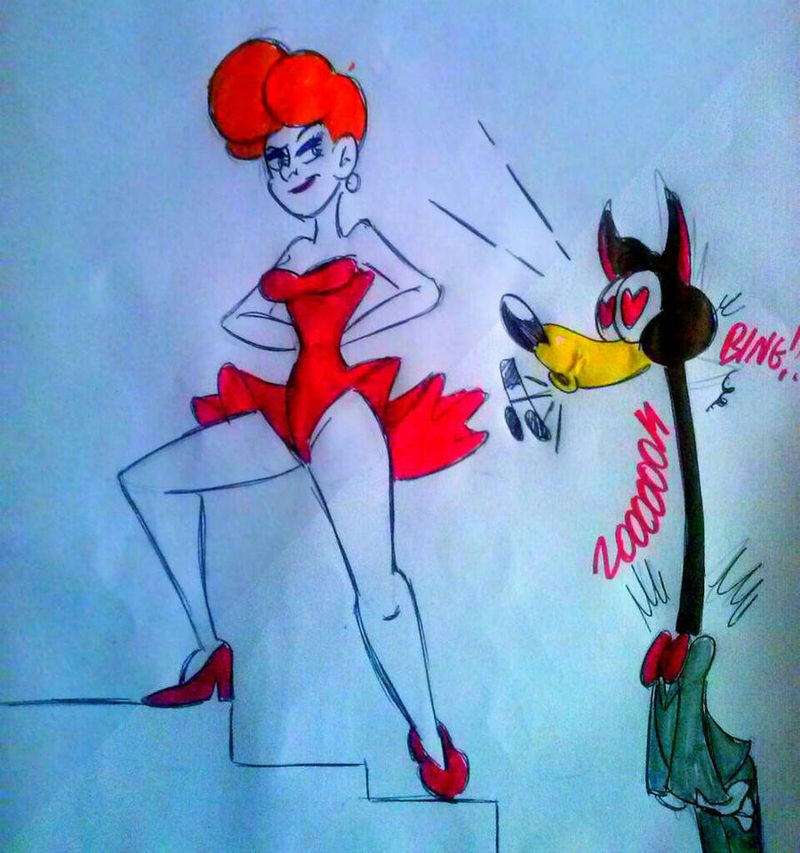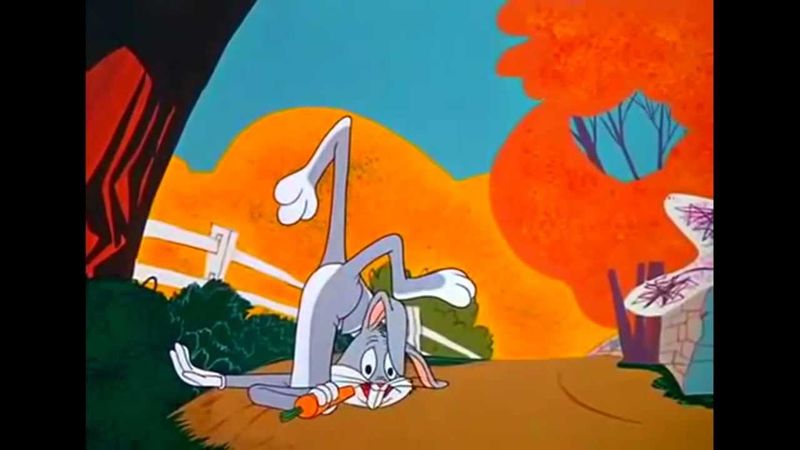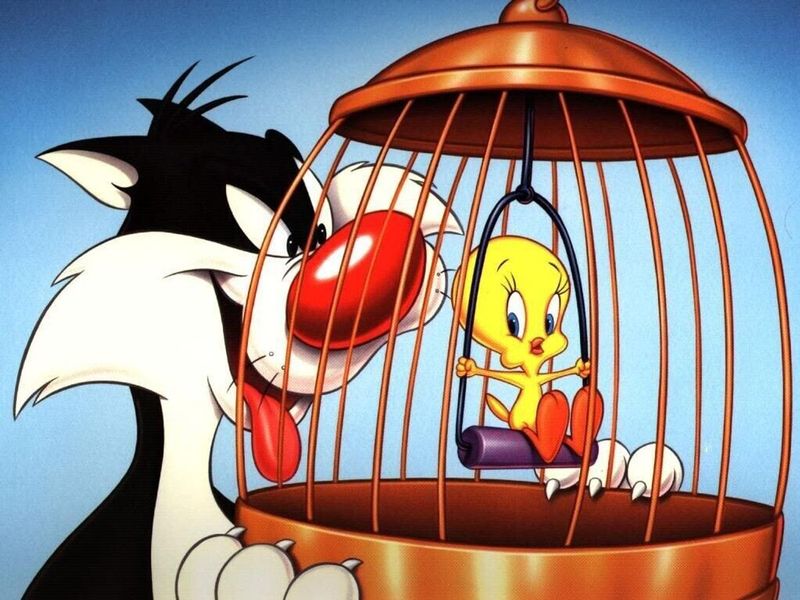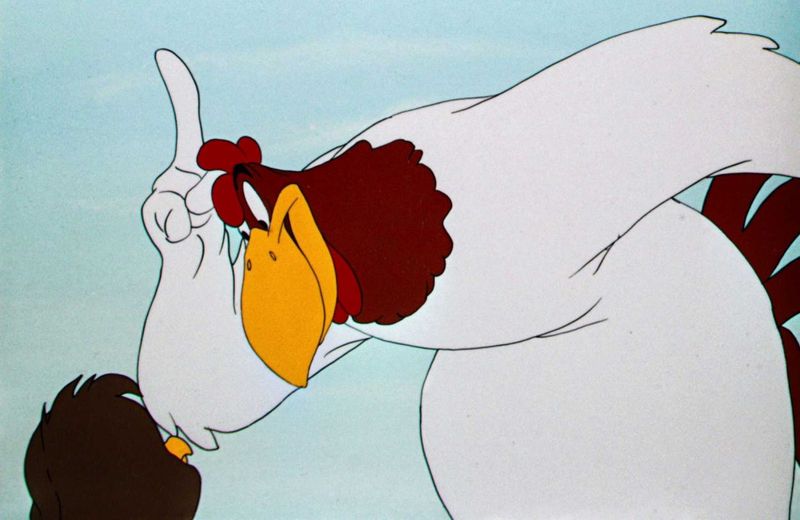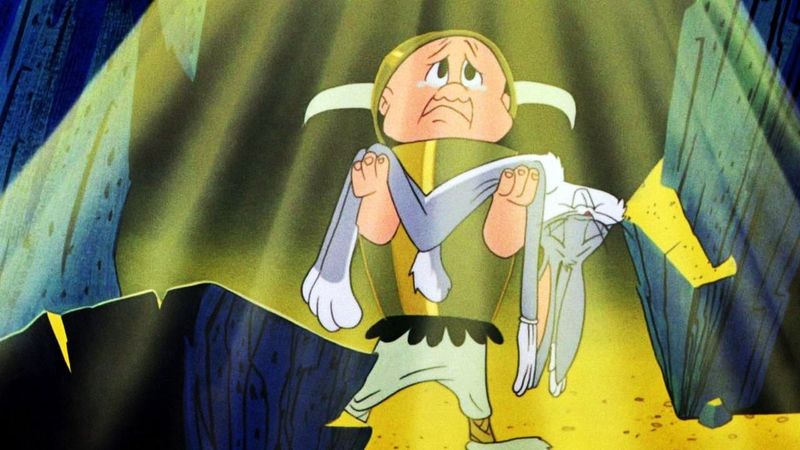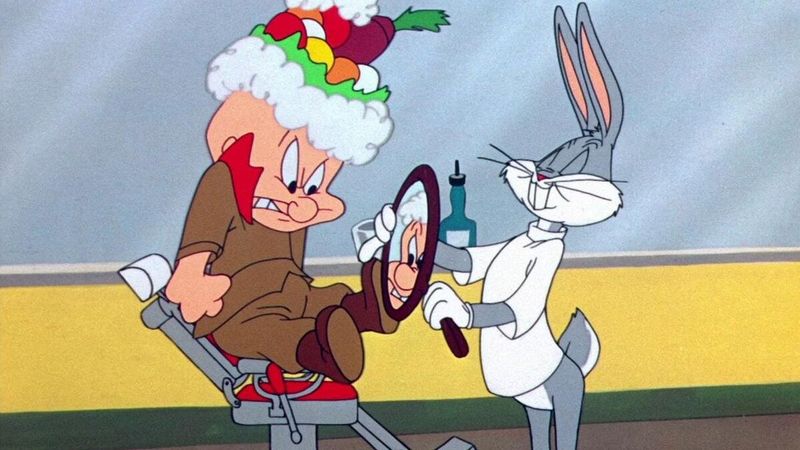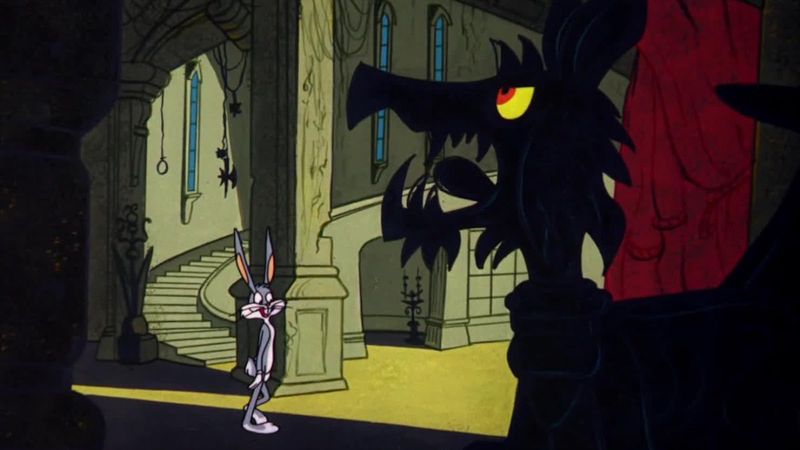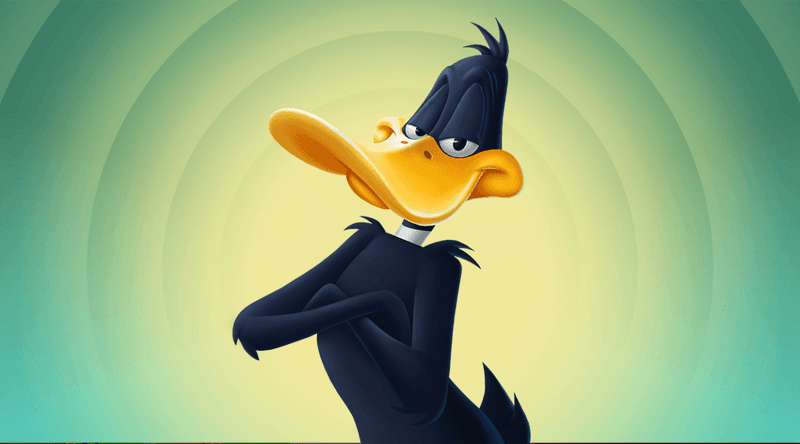Looney Tunes, the beloved animated series, is not just a treasure trove of childhood memories but also a cunning collection of adult-themed jokes. These gags, cleverly hidden in plain sight, were tailored to amuse parents oftentimes more than their children. From cross-dressing antics to sly innuendos, the cartoon creators seamlessly weaved in humor that only the more mature audience would truly appreciate. Here are 13 iconic examples that highlight the sophisticated wit and nuance aimed specifically at adults.
1. Bugs Bunny’s Cross-Dressing Tricks
Bugs Bunny, with his clever cross-dressing antics, never failed to entertain. Often donning a glamorous dress or a sultry outfit, Bugs used these disguises to outsmart adversaries like Elmer Fudd. The humor wasn’t limited to the costumes but extended to Bugs’ flirtatious gestures, suggestive winks, and playful remarks. His famous line, “Oh, you naughty boy!” was delivered with a twinkle in his eye. These moments, filled with double entendres, showcased Bugs’ ability to turn the tables on his foes, making parents chuckle at the clever subtext.
2. Speedy Gonzales’ “Fastest Mouse” Jokes
Speedy Gonzales, known as the “Fastest Mouse in all Mexico,” often used his speed to create humorous situations. His catchphrase, “¡Ándale! ¡Arriba!” was not just about his swiftness but hinted at deeper, more adult frustrations of those left in his wake. Speedy’s antics played on the idea of speed as a metaphor, creating laughs for adults who caught the innuendo. Whether outsmarting Sylvester or just causing chaos, Speedy’s speed became a tool for humor that resonated beyond the surface.
3. Daffy Duck’s Gold Digger
In The Stupid Cupid, Daffy Duck is enamored by a female duck’s beauty, but her affection hinges on wealth. This storyline cleverly satirizes the gold-digger trope. While children saw the romance, adults chuckled at the satire of materialistic love. Daffy’s exaggerated efforts to win her over, combined with her superficiality, created a timeless parody. This gag highlighted adult themes of superficial relationships, illustrating that love sometimes comes with a price tag, a concept not lost on the seasoned viewer.
4. Pepe Le Pew’s Unwanted Advances
Pepe Le Pew, the romantic skunk, was notorious for his relentless pursuit of love. His targets, usually female cats, were accidentally painted with a white stripe. Pepe’s exaggerated French accent and dramatic sighs parodied over-the-top romantic behavior. This gag was a playful critique of unwanted advances, capturing nuances that adults found humorous. Pepe’s obliviousness to rejection and his undeterred charm laid the groundwork for laughs, as viewers recognized the parody of real-life romantic pursuits.
5. Yosemite Sam’s Booze References
Yosemite Sam, the fiery-tempered cowboy, often found himself in comical situations involving alcohol. In Bars and Stripes Forever, he concocts “jungle juice,” leading to hilarious outcomes. While young viewers enjoyed the slapstick, adults recognized the humorous nod to booze culture. Sam’s exaggerated antics with alcohol, including hiccups and slurred speech, provided a humorous reflection on intoxication. These gags offered a layer of adult humor, shining a spotlight on Sam’s wild character and the chaos of inebriation.
6. The Wolf’s Over-the-Top Lust
The Wolf, from Red Hot Riding Hood, took lustful admiration to comical extremes. His wild, exaggerated reactions to glamorous women—panting, drooling, and howling—mirrored adult desires humorously. These antics offered a satirical take on adult themes of attraction, delighting viewers who understood the subtext. The Wolf’s unrestrained displays of affection were both a parody and a humorous exaggeration of real-world behaviors, providing a layer of sophistication in its portrayal of desire.
7. Bugs Bunny’s “Nyeh, What’s Up, Doc?” as Flirting
Bugs Bunny’s iconic phrase, “Nyeh, What’s Up, Doc?” transcended casual greeting to become a tool of playful seduction. In Hare Trimmed, Bugs’ charm is used to flirt with a wealthy dog’s wife, provoking jealousy. This clever twist transformed his catchphrase into a flirtation tactic. Adults appreciated the layered humor and the nuances of jealousy in relationships. The episode highlighted Bugs’ charisma and wit, showcasing how even the simplest phrases can carry multiple meanings.
8. Tweety’s “I Tawt I Taw a Puddy Tat” Mischief
Tweety Bird, with his innocent looks, often turned the tables on Sylvester through clever mischief. His catchphrase, “I tawt I taw a puddy tat,” was delivered with a sly wink, hinting at the trouble he orchestrated. While children saw a cute bird, adults recognized the cat-and-mouse game of wits. Tweety’s antics mirrored adult themes of cunning and strategy, as he played the innocent while deftly outsmarting his feline foe. The layered humor lay in the art of deception and survival.
9. Foghorn Leghorn’s Southern Gentleman Satire
Foghorn Leghorn, with his booming voice and pompous speeches, became a satire of Southern gentlemen. His long-winded monologues and mock politeness were humorous for adults familiar with the stereotype. The character’s exaggerated charm highlighted satirical elements of Southern culture, providing laughs for those who understood the nuances. Foghorn’s antics, often bordering on absurd, captured the essence of parody, offering a humorous reflection on manners and social dynamics.
10. Elmer Fudd’s Freudian Slips
In What’s Opera, Doc?, Elmer Fudd’s pursuit of Bugs Bunny took a dramatic turn. Dressed as a Viking, he chases Bugs, who is disguised as Brünnhilde. The parody of Wagnerian opera added layers of humor, with Elmer’s obsession mirroring romantic fixation. Adults could appreciate the nuanced take on opera’s dramatic relationships. This clever twist showcased Elmer’s character in a new light, poking fun at both his pursuit and the grandeur of opera itself.
11. The Barber of Seville Parody in Rabbit of Seville
Rabbit of Seville stands out as a masterful parody of highbrow opera. Bugs Bunny, in the role of a barber, lavishes Elmer Fudd with suspiciously sensual scalp massages. This sophisticated humor played on the tension between high culture and slapstick comedy. Adults recognized the parody’s cleverness, as opera’s grandiosity was juxtaposed with Bugs’ antics. The blend of music and comedy provided a delightful experience, showcasing how traditional themes could be humorously reimagined.
12. Bugs Bunny’s Gender-Bending in Transylvania 6-5000
In Transylvania 6-5000, Bugs Bunny’s antics took a gothic twist. Pretending to be a vampire’s bride, complete with a gown and flirtatious mannerisms, Bugs played with gender norms. The humor lay in the subversive twist, as Bugs’ sultry voice and playful demeanor added layers of comedy. Adults appreciated the bold exploration of roles and identity, hidden within the whimsical storyline. Bugs’ charm and creativity shone through, providing laughs and thought-provoking moments.
13. Daffy Duck’s Greed as Social Commentary
Episodes featuring Daffy Duck often highlighted his greed, turning it into a humorous critique of capitalism. In Scaredy Cat, Daffy’s obsession with wealth becomes a driving force, offering a satirical take on materialism. Adults found the social commentary engaging, as Daffy’s antics underscored the absurdity of unchecked greed. His exaggerated paranoia and relentless pursuit of money provided a mirror to societal values, crafting a narrative that was both amusing and reflective.
